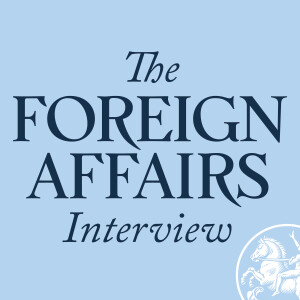Thursday Sep 11, 2025
Donald Trump has been railing against the global economic order from the start of his political career. But in his second term as president, he has turned that critique into blistering action. In just five months, the trade war that started with his April tariffs has completely reshaped the global economy—and struck at the very heart of the trade system that emerged after the end of the Cold War.
To Michael Froman, the diagnosis is terminal. Froman, now the president of the Council on Foreign Relations, which publishes Foreign Affairs, served as the U.S. trade representative in the Obama administration. “Even if pieces of the old order manage to survive,” he writes in the new issue of Foreign Affairs, “the damage is done: there is no going back.” Trump’s “America first” trade policy, and China’s analogous strategy, herald a new order of protectionism, unilateralism, and mercantilism.
Froman warns that economic anarchy could ensue. But as he sees it, any hope of resurrecting the corpse of the old order is delusional. “Nostalgia,” he argues, “is not a strategy.” Rather, the task at hand is to build a new “global economy shaped by rules even without a global rules-based system.”
You can find sources, transcripts, and more episodes of The Foreign Affairs Interview at https://www.foreignaffairs.com/podcasts/foreign-affairs-interview.







